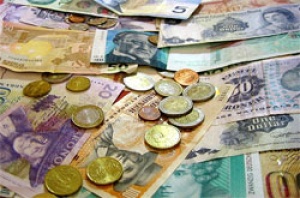What does Sterlings strength mean for holiday makers

“Sterling hit a five year high against the dollar yesterday and remains relatively strong against all of the world’s major currencies. This means most holiday makers will find trips abroad feel a little cheaper than they did last year. GBP/USD has strengthened by almost 10% against the US dollar. However, there are some other currencies which sterling has strengthened against a lot more – these include the Aussie dollar, Canadian dollar and Turkish lire, Brazilian real and Thai baht. The £ will now buy you 25% more than it did in Turkey this time last year. English footie fans have also benefited as the £ will buy you almost 15% more real than 12 months ago.
“There are of course some holiday destinations outside the Eurozone such as Thailand (still one of the best value long-haul destinations for us Brits) or Malaysia (reasonably priced flights, low-cost accommodation and superb, great-value cuisine) where you can not only benefit from getting more value for your sterling but also the recent sterling strength too. Both are regarded as good value holiday hotspots and Thailand is now 20% cheaper via the exchange rate than 12 months ago.”
GBP vs…
Was is now % change +/-
EUR 1.1713 1.2522 +6.5%
USD 1.5296 1.6980 +10%
Swiss F 1.4294 1.5250 +6.3%
Aussie D 1.4903 1.8100 +18%
Kiwi D 1.8168 1.9500 +7.00%
CAD 1.5689 1.8450 +15.00%
AED 5.6178 6.2300 +9.8%
Thai Baht 43.902 54.9500 +20.00%
Turkish Lira 2.7569 3.6200 +13.85%
BRL 3.1083 3.7920 + 18.00%
“To help holiday makers and English football fans avoid being beholden to sterling strength on holiday, HiFX has outlined some tips to help people make the most of their travel money:
Don’t leave it to a last minute dash at the airport:
Traditionally buying currency at the airport will cost between 3-6% more than from a typical high street bureau de change or bank. It’s always cheaper to purchase currency before you go, especially if you buy online; you can not only take advantage of a better exchange rate, but also avoid commission charges. If you do purchase your travel money online, make sure you use a company who offers a secure online service, like HiFX.
ADVERTISEMENT
Beware dynamic exchange rates:
If the hole in the wall or the payment machine in the shop asks if you want to pay in Pounds say no. It’s called dynamic currency conversion and means you’ll usually get a worse rate than your own card.
Avoid using your credit card if you can:
Most cards add a 3% loading cost to the exchange rates meaning you get a really terrible exchange rate and many charge you ATM fees. That said there are a number of specialist credit cards that offer some of the best deals. Some, like the Halifax and Santander cards, don’t and also won’t charge you each time you withdraw money from a hole in the wall. But you do need to open an account with them to get it and as with any credit card they will charge you interest.
Avoid using your debit card:
Beware debit cards as they can be the worst way to spend overseas. Most people, and again I’ve been guilty of this in the past, will use their debit cards whilst abroad thinking they’re avoiding the typical credit card charges I’ve just mentioned. Many debit cards (bank account cards) actually have the worst fees – as they add up to £1.50 every time you spend and an exchange loading fee i.e. a percentage they add on to the exchange rate (typically with the bad cards between 2% and 3%).
If you don’t like the idea of taking too much cash look at one of the many prepaid cards available which allow you to load the card up with cash before you go. Prepaid cards do exactly what they say on the tin and can be used widely at cash machines, restaurants and shops. Their big advantage is security as if you lose your card most providers will (for a fee) replace it with all the funds intact.
Choose the best currency if you’re travelling across multiple currency zones:
Sterling, euro and US dollars can be widely exchanged in most tourist destinations, compared to local or more exotic currencies, such as the Thai baht. If going away for a long period or visiting a number of countries, HiFX advises that you exchange enough of the local currency for immediate purchases, such as taxis from the airport and then take sterling, euros or US dollars with you to exchange into relevant currencies needed during your travels.
Avoid trying to beat the markets. Unless your holiday is in 6 months’ time, fluctuating exchange rates will make very little difference to the amount of money you’ll get for your pounds:
By leaving ordering your travel money until the last minute you risk missing out on the good deals available from ordering money in advance online. If you’re going on holiday in a week or two’s time, you’ll actually save yourself more by following the tips I’ve just been through.
Finally, plan a budget – and stick to it!
Calculate the sterling amount you expect to spend each day; don’t forget you could spend a lot more on holiday! Extra funds should be factored in for emergencies, delayed flights, etc. Try to stick to this to avoid making expensive cash withdrawals abroad or being left with excess currency at the end of your holiday.
Remember banks and bureau de changes will only change notes, so get rid of all loose change while you’re away, or save it for your next trip! Alternatively, some airlines collect left over coins for charities during the flight.

